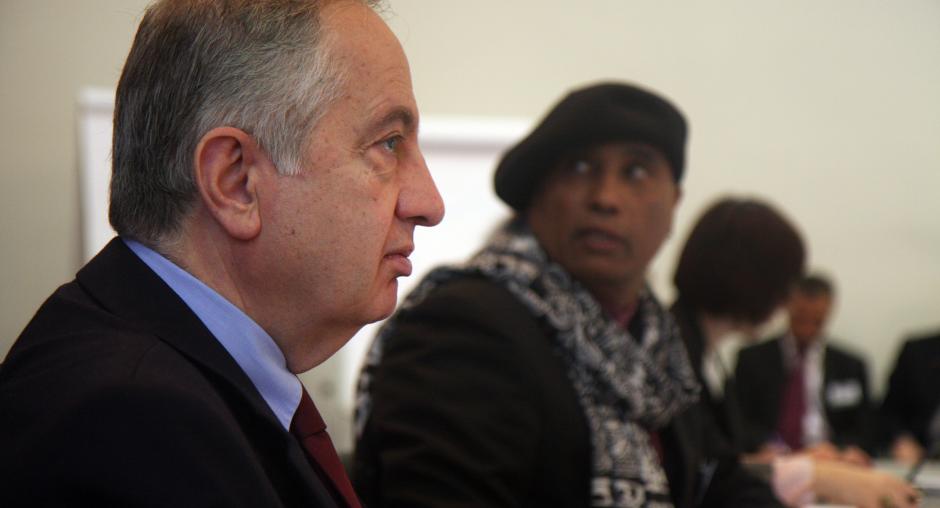Young Muslims at OSCE roundtable meeting voice concern over increasing anti-Muslim attitudes

VIENNA, 17 December 2008 - Young leaders and other representatives of Muslim communities from the OSCE region voiced concern at a meeting in Vienna today about rising anti-Muslim attitudes among majority youth populations in some participating States. They also emphasized the importance of education in addressing many challenges young Muslims continue to face.
The one-day meeting was organized by the OSCE Office for Democratic Institutions and Human Rights (ODIHR) and the OSCE Chairman-in-Office's Personal Representative on Combating Intolerance and Discrimination against Muslims, Ambassador Ömür Orhun.
"Young Muslims are faced with a multitude of challenges, such as the need to accommodate different identities, alienation and exclusion, under-achievement in school, discrimination based on religion and lack of access to the job market," said Jo-Anne Bishop, the head of ODIHR's tolerance and non-discrimination department.
"Education is one of the most efficient means to prevent hatred and bias. We will continue to engage with Muslim youth groups in the development of specific guidelines for educators to address intolerance and discrimination against Muslims in the classroom," said Bishop.
Ambassador Orhun emphasized the need for non-governmental organizations to participate in the development of educational tools, policies and programmes addressing intolerance against Muslims to ensure their effectiveness.
"The meeting made clear how important it is to engage with young people in promoting inter-cultural dialogue to address intolerance against Muslims. Increased recognition of Muslims' historical and cultural contribution to their societies is also of crucial importance for achieving greater mutual respect and understanding," Orhun said.
The event was the third in a series of meetings with civil society organizations on addressing intolerance and discrimination against Muslims. ODIHR's network of organizations dealing with the issue includes more than 130 groups from across the OSCE region, more than 30 of which participated in the meeting.
ODIHR provides training for civil society on monitoring and responding to hate crimes.
